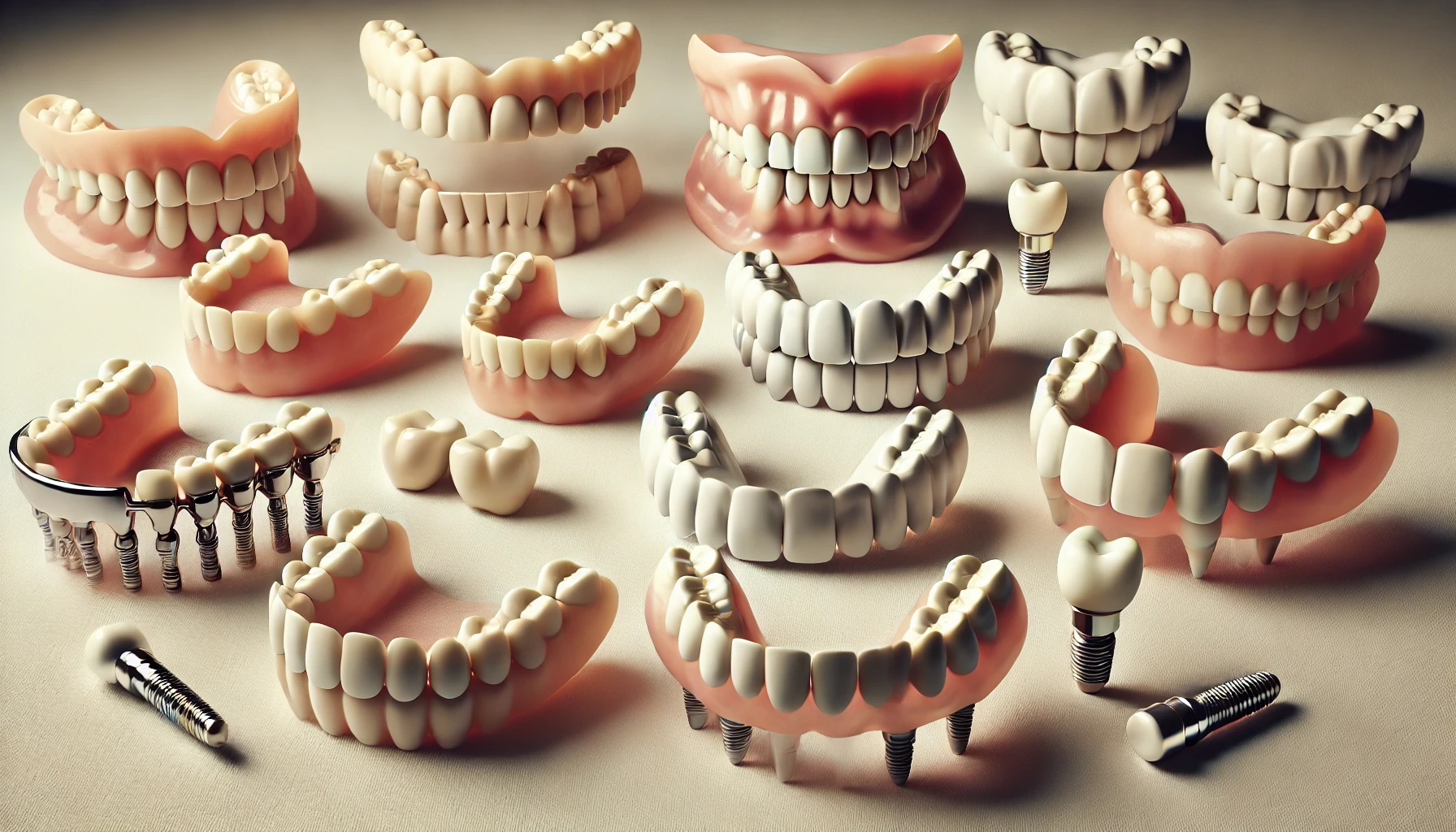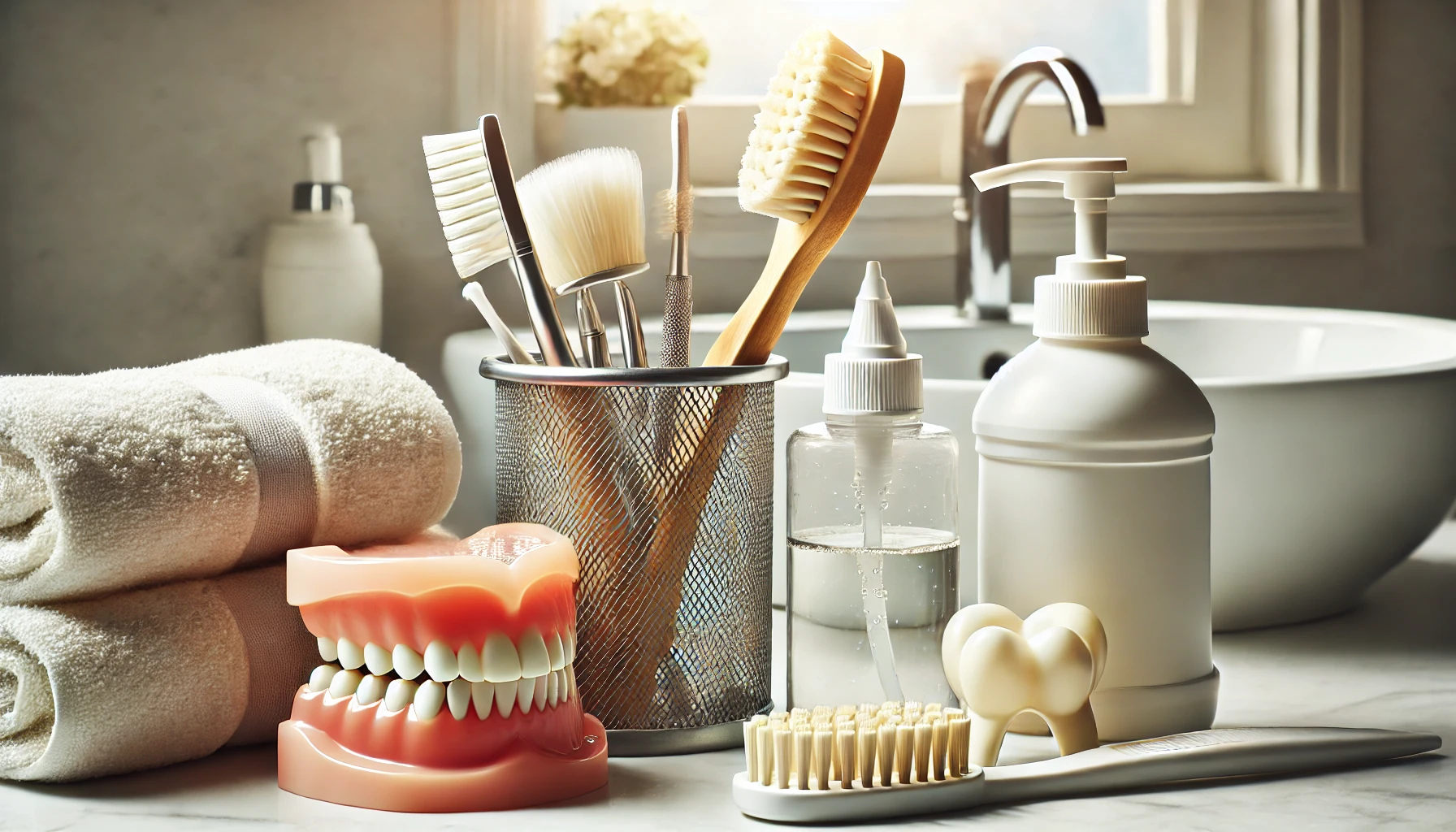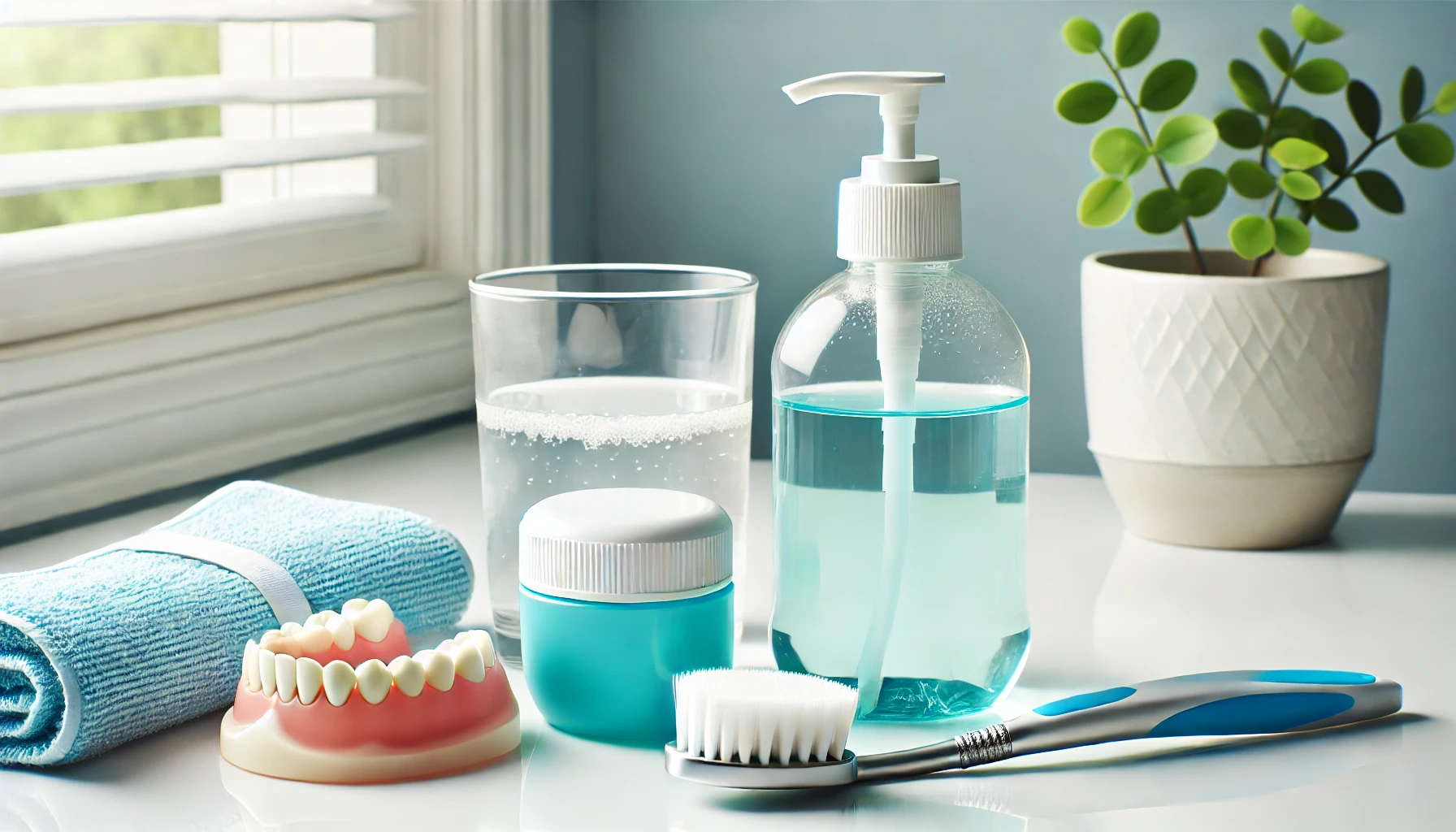Dentures are a reliable solution for replacing missing teeth, helping restore both the functionality of your mouth and the appearance of your smile.
Whether you need full or partial dentures, understanding how to achieve a comfortable fit is essential for long-term satisfaction. This article will cover the types of dentures available, the process of fitting dentures, and tips for maintaining comfort.
Types of dentures: Which one is right for you?
There are several types of dentures available to suit different needs and preferences. Complete dentures are used when all teeth are missing and can be either immediate or conventional.
Immediate dentures are placed right after teeth extraction, while conventional dentures are fitted after the gums have healed.
Partial dentures, on the other hand, are used when some natural teeth remain. These dentures not only fill in gaps but also prevent other teeth from shifting. Overdentures fit over a small number of remaining natural teeth or implants, offering more stability.
Implant-supported dentures are another option, providing a secure fit as they are anchored to dental implants in the jawbone. When choosing the right type of dentures, consider your oral health condition, lifestyle, and budget, and consult with your dentist to find the best fit for your needs.
How dentures can improve your smile and C´confidence
Dentures offer a transformative effect on both your smile and confidence. By replacing missing teeth, they help restore the natural contours of your face, preventing the sagging appearance often caused by tooth loss.
A full, even smile enhances facial aesthetics, allowing individuals to express themselves more freely and with renewed self-assurance. With the functionality restored, everyday tasks like eating and speaking become easier, reducing self-consciousness.
This newfound confidence radiates outward, positively impacting social interactions and personal relationships. Dentures also allow for a wider variety of food options, contributing to better nutrition and overall well-being.
Caring for your dentures: Tips for long-lasting results
Good oral hygiene is essential for maintaining the comfort and longevity of your dentures. Properly cleaning them after each meal helps remove food particles that can cause discomfort or bad breath.
Brushing with a soft-bristled brush, mild soap, and lukewarm water is recommended, as harsh products can damage dentures. Handle them with care to avoid dropping or bending the delicate structure.
Soaking dentures overnight in a denture cleaner ensures thorough disinfection and prevents plaque buildup. Avoid using hot water when soaking, as it can warp the shape of your dentures.
Regular dental check-ups are also crucial for detecting any issues early on and ensuring proper fit and function of your dentures. By following these tips, you can maintain the comfort and appearance of your dentures for years to come.
The cost of dentures and how to afford them
The cost of dentures varies depending on the type, material, and additional procedures needed for a comfortable fit. While they can be a significant investment, there are ways to make them more engelsk
affordable.
Dental insurance plans often cover some or all of the cost of dentures, so it is worth checking with your provider. Flexible payment plans offered by many dental offices can also help spread out the expense over time.
Additionally, government programs and non-profit organizations may provide financial assistance for those who qualify. Don’t let finances stand in the way of achieving a healthy, confident smile – speak with your dentist about options that may work for you.
Here’s everything you need to know to ensure your denture fit is both comfortable and effective:
- Choose the right type of dentures: Whether you need a full set of dentures or partial ones, choosing the right type ensures better comfort and function.
- Proper adjustments are key: It’s common to need adjustments as your mouth adapts to the dentures, ensuring they fit snugly without causing discomfort.
- Use denture adhesive if necessary: Denture adhesives can provide additional stability, especially for lower denture sets, making it easier to chew and speak.
- Visit your dentist regularly: Regular check-ups help ensure that your denture fit remains comfortable as your mouth changes over time.
- Practice good oral hygiene: Keeping your teeth and gums healthy is crucial even with dentures, as it helps prevent irritation and ensures the best possible fit.
Summary
Achieving a comfortable fit with dentures is vital for both functionality and aesthetics. Whether you need a full set of dentures or a partial denture, following proper fitting procedures and caring for your dentures ensures long-term comfort. Working closely with your dentist, making adjustments as needed, and practicing good oral hygiene all contribute to a successful experience.
Questions and Answers
What are dentures?
Dentures are removable dental appliances designed to replace missing teeth. They can be either full or partial, depending on how many teeth need replacing.
How are full and partial dentures different?
Full dentures replace an entire arch of teeth, while partial dentures fill gaps left by a few missing teeth, anchoring to your remaining natural teeth.
How can I ensure my dentures fit properly?
Regular visits to your dentist are key to ensuring a comfortable fit. Adjustments may be needed as your mouth changes over time.
What should I do if my dentures feel uncomfortable?
If your dentures cause discomfort, contact your dentist for adjustments. Never try to adjust them yourself, as this can damage the denture.
Can I eat normally with dentures?
Yes, but it may take time to adjust. Start with soft foods and gradually reintroduce harder foods as you get used to your set of dentures.
How long does it take to get used to wearing dentures?
It typically takes a few weeks to get accustomed to new dentures. Regular wear will help your mouth adapt more quickly.
Should I wear my dentures at night?
Your dentist may recommend removing your dentures at night to give your gums a rest and allow proper cleaning of the denture.
How do I clean my dentures?
Use a soft brush and a non-abrasive cleaner designed specifically for dentures. Rinse them after every meal and soak them overnight in a denture solution.
Will my speech be affected by dentures?
You may experience slight changes in your speech at first, but this typically improves as you get used to speaking with your dentures.
Do I still need dental check-ups with dentures?
Yes, regular dental visits are important even with dentures to ensure they fit properly and to monitor the health of your gums and any remaining natural teeth.








